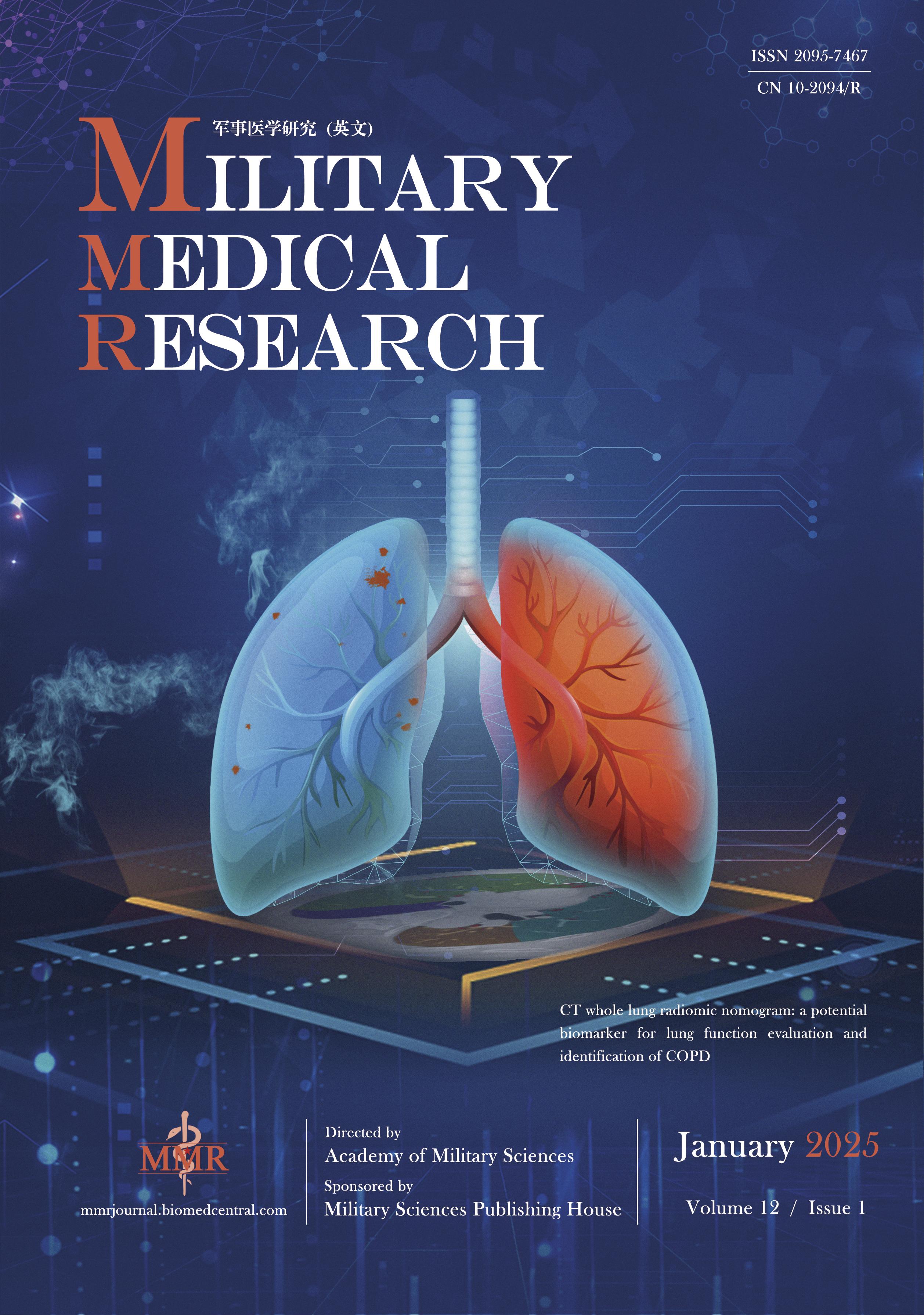Fostering Military-Civilian Partnerships in Medicine

As an important branch of comprehensive medicine, military medicine leads the innovation of medical technology in multidisciplinary fields, and extensively incorporates the sci-tech achievements of clinical, basic and preventive medicine to promote its innovative development.
Military Medical Research (MMR), founded in 2014, filled the void in English journals presenting military medicine in China. It not only reflects the frontline progression of military medicine research and communication, but also advances military-civilian mutual transformation of medical innovations.
Breaking stereotypes
At its beginning, MMR aimed to break the stereotypical perceptions of its content scope. Modern military medicine had already developed into a full-dimensional mission innovation system centered on injury treatment, health maintenance, capability enhancement, and the generation of new combat effectiveness. It was no longer just wartime or battlefield-related trauma care.
Over the past decade, MMR has been expanding the connotation of the discipline of modern military medicine and creating an open innovation ecosystem with the development of military-civilian partnerships and cross-integration.
Building global connections
Adhering to the philosophy of "running the journal for and by scientists" and focusing on critical care medicine, we invited a tenured professor from the University of Pittsburgh to serve as the international executive editor and recruited internationally reputed experts in related disciplines for the editorial board.
Dr. Timothy R. Billiar, president of the International Federation of Shock Societies, and Irshad H. Choudhry, a professor at the University of Alabama at Birmingham and editor-in-chief of the well-known journal Shock, were invited to be consultants for the journal. They contributed innovative publications and discussions on sepsis, shock and trauma.
Currently, international manuscripts account for over 80 percent of MMR publications, with the authors coming from top medical institutions such as Harvard Medical School and Stanford University, as well as well-known medical centers of the militaries of the U.S., Germany and the UK. The journal has more than 1,400 international core reviewers from 83 countries and regions, providing high-level peer review and promoting innovation and development in the medical discipline through academic communications.
Dedicated to forward-looking innovation
MMR focuses on the promotion of military medical innovation and development. It is pushing forward the global technological frontiers and developing future academic and industrial branches, leading military medicine topics.
It champions interdisciplinary research and translational studies linking clinical practice with laboratory findings. For instance, a team led by academician Li Xiaokun at Wenzhou Medical University in east China developed an innovative piezoelectric hydrogel scaffold for efficient bone injury treatment, demonstrating significant potential for military medical applications.
After more than 10 years of unremitting efforts, with the support of colleagues worldwide, the connotative quality, international visibility and academic influence of MMR have significantly increased. It ranks ninth among 325 international Science Citation Index journals in comprehensive medicine and has been recognized as "China's Academic Journal with the Most International Influence."
Though there is a still long way to go, we are endeavoring to work with medical experts and scholars at home and abroad for a peaceful and healthy world.
The article is contributed by Fu Xiaobing, an academician at the Chinese Academy of Engineering and editor-in-chief of MMR, and Fan Chenfang, the editorial director of MMR.
Journal Review
MMR is a general medical journalwith unique characteristics. The publication of original, transformationaland crossover research results relatedto military- civilian commonality continues to stimulate the agglomerationeffect of innovative thinking, innovative behavior and innovation directionin the discipline, and has drawn the attention of many medical innovation researchers.
The development of MMR comesfrom, first of all, having an innovativeand integrated team. The editor- inchief and core editorial board members continuously innovate the structure of the editorial board, focus on improving the ability to run the journal,and adopt various ways to absorb highlevel young talent and internationalexperts in the team, providing strongacademic support for the journal.
Since its establishment, the journal has endeavored to build an international reputation through scientificand standardized management. Acomplete academic quality and publication quality control system andworking system have been established. Procedures for the identification, investigation and handling of academic misconduct have been strictlyimplemented, and the journal's scientific rigor has been established amongthe majority of researchers.
We hope that MMR will enhanceits academic leadership, communication power and influence, and becomea high- end academic exchange platform, leading to the development ofmedical innovation and fostering moreoutstanding medical research talent.
—— Gu Xiaosong, academicianof the Chinese Academy of Engineering, and director of the Key Laboratory of Neuroregeneration of Jiangsu Province, Ministry of Education, Nantong University.







